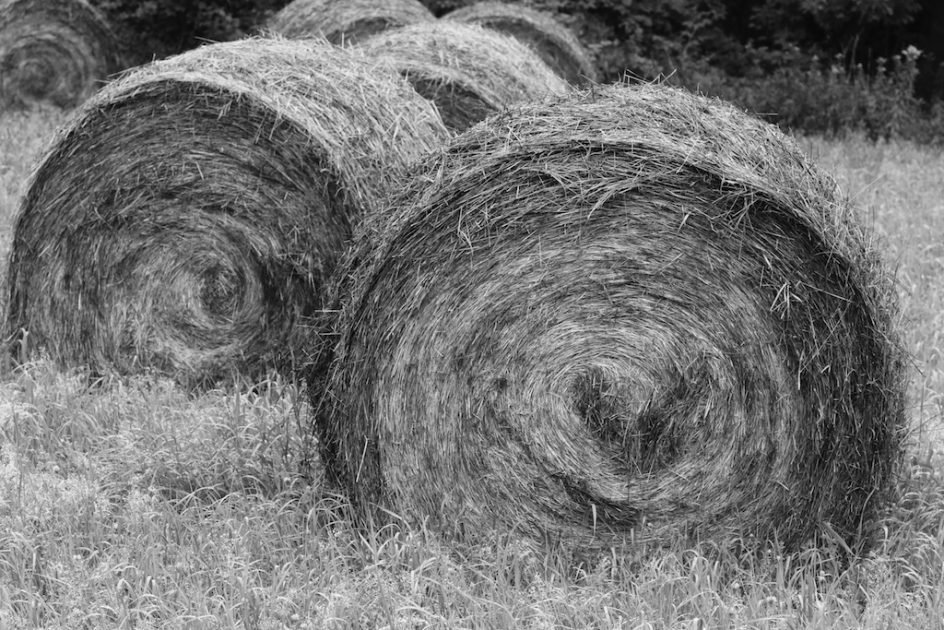
The modern agribusiness is steadily wiping out the family farm, writes Wendell Berry, removing it from its cultural context and also from the family and from the land.
Americans don’t really care about this because the urban supermarkets are stuffed with food. The productivity of American agriculture is staggering, but the production, says Berry, is based on the ruin both of the producers and the source of production. The farmers say the big corporations care nothing for the land and know nothing about it.
The people who know about farming, and what farmland requires to remain productive, are worried. All over the country, topsoil losses exceed the weight of grain or crops that are harvested.
The government and its economists decided a half-century ago that there were too many people in the country, and now, they are concluding there are too many people in the city. There, they talk of the new farmers, the unemployable and the disconnected and the left behind.
And it seems many of them have been abandoned there as well, as the needs and interests of the powerful and the political change constantly. Unlike farmers, corporations and lobbyists are very quick to adapt.
No one seems to worry what people are for, or take much trouble to care for them when their lives are disrupted. We are already paying the price for that.
They don’t seem to know it yet, but the left behind of the country and the left behind of the city are brothers and sisters. One day, they may come together.
When the economists and politicians abandoned the country, they sparked one of the great migrations in American or human history, the movement of many millions of people from the country to the city. They took with them the sense of community and the connection to the land that had always been the hallmark of the family farm.
American farmers invented our idea of community, the founders believed community was the core and universal value of the new country. I have not heard a presidential candidate of any disposition mention community once.
Our idea of community has struggled since then. In the cities, people have temporal jobs they hate working for people who care nothing for them, they are the new form of disposable trash. In the country, there are few jobs left and the institutions of community – the small stores, feed shops, Granges, churches, factories, restaurants and taverns – are mostly gone.
I think of community when I drove by these hills and see all of the round bales of hay sprouting like magnificent bushes or flowers. They are a familiar and oddly beautiful part of our landscape.
They will soon be collected and stored for the winter to feed the cows. They are totems of community, people lease their fields to farmers, who harvest the hay and turn them into round or square bales.
I suppose this is why the Round House Cafe is so important to us, it is one of the last strongholds of community left, the others have all been gobbled up by corporate box stores and franchises or shuttered due to the continuous loss of population. The children of the farms are mostly gone, there is little work for them here. You can drive through almost any rural and agricultural community and see the abandoned farmhouses and shuttered Main streets.
My town is in better shape than many, a lot of our farmers are hanging on.
It has been a strange but ultimately good season for hay – dry spells punctuated by dryness and heat. Lately, lots of rain. The farmers say the first cut was good and plentiful. Second cutting is underway. The round bales are a symbol of our community, also a sign that winter is not too far away.
Farmers spent much of the year thinking about winter, and so do I.
I am not a farmer, but a writer with a farm I write about, and my farm has re-connected me to the land, and I am not suited to be a farmer. I was disconnected from the land, like most people, for much of my life. I am getting re-acquainted with it, I have to pay attention to the soil and the grass, the weather and the animals, the water and the sun, the trees and the bushes.
I know the farmers who bring me hay, and the farriers who trim our animals hooves, and the shearer who shears our sheep, and the big men in trucks who can re-arrange the earth with their tractors. Many have become my friends, my community. I am not one of them, but we are bound together.
I watch the sky and the soil and talk to the old farmers about what the coming winter will be like, they all have their old and secret methods for knowing and predicting. It is the time of the round bales.
Our life here revolves around nature and the land, and we have to know it in order to be here and care for the animals. We are inexorably bound to the land, we cannot afford to forget about it or be ignorant of it.
I don’t know much, but I hide much of what I know from the people here, they are quick to resent outlanders who think they know too much. They keep an eye out for me.
The time of the round bales tells me the seasons are beginning to change, the moving finger writes again, another season rushes towards me, another begins to fade away.
Farms are part of our cultural context, the threads of community. I pray they never go away.
